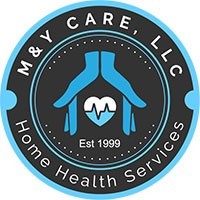
by Vikram Makhija | Nov 20, 2021 | Blog |
If you’re like most people, you probably think of home health care as only for the elderly or infirm. And while it’s true that those populations often need these services, there are many other reasons to consider them.
In fact, there are a number of reasons why home health care might be a good option for you or someone you love. Here are just a few:
Home health care is more affordable than you may think.
Many people assume that visiting nurses only do the most basic tasks, helping patients with things like bathing or making sure they take their medication on time.
While this kind of care certainly does fall within traditional home health care services, there’s actually much more involved in providing these services than you might imagine (and less involved in taking them away).
For example, these nurses will also check out everything from iron levels to blood sugars . When done regularly this not only ensures that your loved one is staying as healthy as possible, it can also help head off potential health problems down the road.

Home health care is often more convenient than a trip to the doctor’s office.
When you’re not feeling well, the last thing you want to do is travel somewhere. With home health care, your loved one can get the care they need without ever having to leave home.
This is a huge plus for anyone who is elderly or frail, since it means they don’t have to put any extra strain on their bodies. It’s also great for kids who are sick – no need to miss another day of school!
Home health care helps keep families together.
There’s nothing quite like being able to take care of your loved one in the comfort of their own home. When you choose home health care, you’re not only ensuring that they get the best possible care, but you’re also keeping your family close.
This can be incredibly important during difficult times, and can help make sure that everyone stays connected even when things are tough.
Home health care provides peace of mind.
For many people, one of the biggest benefits of home health care is the peace of mind it brings. Knowing that someone is checking in on your loved one regularly – and that they have access to quality medical care should something happen – can be a huge relief. It’s one less thing to worry about, and can really help take the load off in a time of need.
If you’re considering home health care for yourself or a loved one, be sure to check out the many services offered by agencies like Amedisys.
From in-home nursing to physical therapy to hospice care, they have everything you need to make sure your loved one gets the best possible care – all in the comfort of their own home.
It can help reduce hospital readmissions.
As the number of older adults in America continues to rise, hospitals are working harder than ever before to ensure that their patients are discharged quickly and safely. While many patients do wonderfully during their initial hospital stays, some end up returning because they aren’t getting the post-hospital care they need.
When you choose home health services, you’re not only reducing this risk, you’re also freeing up valuable hospital beds for other sick individuals. This helps improve your loved one’s chances significantly while also helping hospitals better serve their communities .
It can help reduce the cost of professional caregiving services.
For some families, the cost of hiring a professional for home health care is simply too much to handle. But even if you can afford it, this doesn’t mean that your loved one will be receiving the right type of care.
Professional home health care services are just that – professional . This means that they aren’t always equipped to deal with certain situations or challenges, regardless of how well trained they are.
By choosing an in-home nurse, you can rest easy knowing that someone who really understands your loved one’s specific needs is there when they need them most.
It allows individuals to receive more personalized attention.
As anyone who has ever worked with a personal assistant can tell you , having someone around to help lighten the load can be one of the most rewarding experiences in life. This is especially true when it comes to caring for an elderly loved one.
When you choose home health care services, you’re allowing your loved one to have more personalized attention without requiring you to hire a full-time nanny .
Instead of having to place them in a facility or pay someone else to take care of everything, you can simply hire the right company and let them handle all of the hard work. This means they’ll feel more supported and unified with their family during some of the toughest moments they’ve ever faced .
It can help save families money on professional caregiving services over time.
While many families might balk at the idea of hiring a nurse to take care of their loved one, the benefits can quickly become clear over time. This is especially true when you choose a home health care service that offers ongoing check-ups and exams .
By having someone with medical training on-hand to monitor your loved one’s vitals, you’ll know if they start to decline before it becomes an issue. This allows you to plan ahead instead of scrambling at the last minute, which helps save money in the long run.

It can improve your loved one’s quality of life.
Above all else, the most important thing to remember is that home health care can improve your loved one’s quality of life in a significant way. From providing them with the emotional support they need to making sure they’re getting the right type of care, everything you do makes a difference.
When it comes time to choose a home health care service, be sure to do your research . Not all services are created equal, and some might be better suited for your specific needs than others. With the right care in place, you can feel confident knowing that your loved one is in good hands – no matter what happens.
It can provide peace of mind for caregivers.
Even when your loved one is in the best hands possible, you’re still going to worry. After all, this is a family member we’re talking about!
But when you choose home health care services for an elderly parent or relative , your peace of mind can remain intact thanks to around-the-clock support and care.
When your loved one has medical training on hand to monitor their vitals and watch out for potential issues, it provides both them and you with an added layer of security.
Instead of scratching your head at 3AM because they aren’t answering the phone, having a nurse there allows you to get the sleep that you need so that everything feels more manageable come morning time .
There are many different types of home health care services available, so there’s sure to be one that meets your needs.
Just as there are many different types of people in the world, there are also many different types of home health care services available. This means that no matter what your needs or budget happen to be, you’re sure to find something that works for you.
From nurses who provide around-the-clock support to aides who can help with simple tasks like bathing and grooming, there’s a service out there that can meet your specific needs. Be sure to do your research before making a decision, as this will help ensure that you’re getting the best possible care for your loved one.
Final thoughts
Choosing home health care services can be one of the best decisions a family caregiver ever makes. By providing your loved one with the support they need, you’re giving them the chance to live their life in the best way possible – no matter what happens.
As we age, our health begins to decline and we often need a little extra help to get through the day. Home health care services can provide that help, whether it’s through around-the-clock support or periodic check-ups. With the right service in place, you can rest assured knowing that your loved one is being taken care of in the best possible way.

by Vikram Makhija | Nov 10, 2021 | Blog |
People are living longer than ever before. In the United States, there are now more than 46 million people aged 65 or older, making up 15 percent of the population. Advances in medical science and technology have contributed to this increase in life expectancy, but with age come new challenges.
One of the most important issues facing seniors today is how to age safely and effectively in their own homes. For many, home health care services provide the necessary assistance and support to do just that.
In this post, we’ll take a look at what home health care services are all about and how they can help you or a loved one stay safe and comfortable at home as you get older. We’ll also discuss some of the common misconceptions about these services and set the record straight.

What Are Home Health Care Services?
Home health care services encompass a wide range of support and assistance that can be tailored to meet the specific needs of each individual client. Generally, home health care providers offer one-on-one care or assistance with various activities of daily living (ADLs), such as bathing, dressing, and grooming. They may also provide medication management, help with mobility, or aid in preparing meals.
Most home health care services are provided in the client’s own home, which allows them to maintain their independence and privacy while getting the support they need. In some cases, however, clients may require more intensive or round-the-clock care and may need to move into a care facility.
Who Needs Home Health Care Services?
Seniors are the most common recipients of home health care services, but the need for these services can arise at any age. Anyone who is unable to fully take care of themselves or who requires assistance with daily activities may benefit from home health care. This includes people who are recovering from an illness or injury, those living with a chronic condition, and those who are nearing the end of their life.
How Much Do Home Health Care Services Cost?
The cost of home health care services will vary depending on the type and intensity of care needed. Generally, however, expect to pay anywhere from $15 to $40 per hour for one-on-one care. More intensive or around-the-clock care that requires the assistance of multiple caregivers will cost more, with some agencies charging $50 to $100 per hour or more.
It’s important to note that Medicare does not cover home health care services unless they are ordered by a doctor as part of your post-hospital recovery. But you may be eligible for other financial assistance programs to help offset costs.
For example, some states offer grants through their Area Agencies on Aging (AAA) that can help pay for certain home health care expenses. You can find your local AAA office at eldercare.gov . Depending on your situation, you may also qualify for Medicaid benefits .
There is also an extensive network of non-profit organizations dedicated to helping seniors and others with financial difficulties pay for home health care services. The best way to find a non-profit that can help you is to visit the website of the National Association of Area Agencies on Aging .
Once there, choose your state from the dropdown menu and click “Go.” This will bring up contact information for your local AAA office, which can provide names and phone numbers of agencies near you that may be able to assist.
Misconceptions About Home Health Care Services
In many cases, seniors are reluctant to seek out home health care services because they believe these services are only necessary when they are in poor health or nearing death. Contrary to this belief, it’s important to remember that seniors need assistance with daily activities at any point in their life, not just in the later years.
Another common misconception is that home health care services are expensive and unaffordable. As we’ve seen, however, the cost of these services can vary depending on the level of care needed. And for those who qualify, there are a number of financial assistance programs available to help pay for home health care.

How Home Health Care Services Can Help You or a Loved One
There are many ways in which home health care services can help you or a loved one stay safe and comfortable at home as you get older. Here are just a few:
- Home health care can provide assistance with daily activities such as bathing, dressing, grooming, which can help seniors stay healthy and independent.
- Home health care can also provide medication management and other health services, which can help seniors stay on track with their treatments and improve their overall health.
- Home health care can help caregivers provide the emotional support and social interaction that is so important for seniors’ mental wellbeing.
- And lastly, home health care can provide peace of mind to both seniors and their loved ones by ensuring that someone is always there to help in case of an emergency.
If you are considering home health care services for yourself or a loved one, it’s important to do your research and find the right agency that fits your needs. The best way to start is by visiting eldercare.gov , where you can find information and referrals for local agencies in your area. And remember: No matter what age you are, it’s never too early to start looking into the kinds of services available to help seniors live more independently at home.
Blog post conclusion paragraph
In this blog post, we’ve looked at how people are living longer and what that means for seniors. We touched on the importance of aging in place safely with home health care services from a professional caregiver to help you stay healthy and happy at home.
If you or someone close to you is dealing with these issues, please contact us today. Our team can provide all-inclusive senior inhome care solutions tailored just for your needs!

by Vikram Makhija | Nov 1, 2021 | Blog |
If you’re a caregiver for a senior, you know it can be challenging. But don’t worry, you’re not alone! Here are some tips to help make your job a bit easier. First, make sure the senior has plenty of activities to keep them busy.
This will help prevent them from feeling bored or restless. Second, make sure their living environment is as comfortable as possible. Third, eat healthy and exercise regularly yourself so you can stay energized and healthy.
Finally, stay positive and patient! Remember that the elderly often have difficulty with mobility and memory, so don’t get frustrated if they forget things or take a long time to do something. With these tips, you can make caring for a senior a little less daunting.

1. Learn to identify signs of dementia. Some common symptoms of dementia are confusion, agitation, anxiety, restlessness, depression, changes in mood or behavior and memory loss.
2. Try to keep the senior’s living environment as comfortable as possible. For instance, ensure they have enough lighting in their home so they do not trip over things at night.
3. Make sure to eat healthy and exercise regularly yourself so you can stay energized and healthy. This is especially important if you’re caring for an elderly parent too!
4. If your senior loves gardening, encourage them to start a garden in their backyard! They’ll love getting fresh air while socializing with friends or neighbors who stop by to help out or give advice on which plants grow best in certain conditions (e.g. full sun, partial shade, etc.).
5. Stay positive and patient! Remember that the elderly often have difficulty with mobility and memory, so don’t get frustrated if they forget things or take a long time to do something. With patience, you can make caring for a senior much easier!
6. Know what to do if the senior falls and is unresponsive. If you notice they have been sitting or lying in the same position for a long time, shake them and ask if they are alright.
Try to get them to respond by asking questions (“What is your name?”, “What day/month/year is it?”, etc.). If you’re unable to get a response from them after several attempts, call 911 immediately.
7. Know what not to do if the senior falls and is unresponsive. Calling their names repeatedly or shaking them roughly will not help! You should also avoid trying to pick up an unresponsive senior yourself as this can make injuries worse, do more harm than good, and could even lead to broken bones.
8. Set reminders on your phone of when medicines need to be taken, appointments need to be made, or when the senior needs to eat. This will help you stay organized and less stressed.
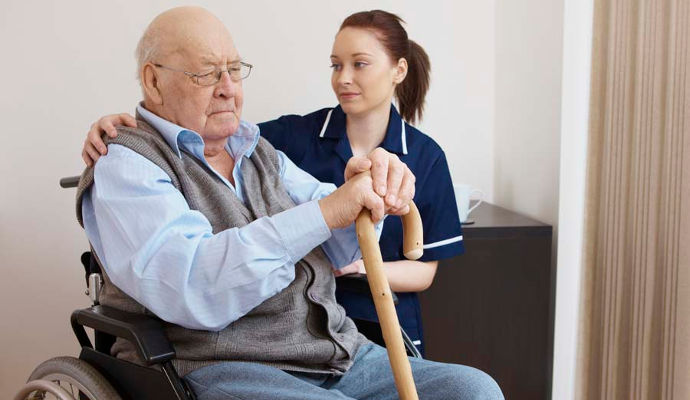
9. Get involved with a support group for caregivers. This is a great way to share your experiences and advice with others who are in a similar situation as you. You can also find out about helpful resources and programs in your area.
10. Take breaks! If you’re feeling overwhelmed, take some time for yourself. Go for a walk, watch your favorite movie, or just relax in a quiet room. Knowing you have some time to yourself will help rejuvenate you so you can continue caring for the senior.
11. Educate yourself on how to handle a seizure in a senior. If it’s necessary to wake the senior up, do so gently. Gently shake them and call their name until they respond. When the seizure is over, help them safely return to a laying position if they are standing or sitting upright.
12. Pick up all loose items in the home, especially small objects like coins or jewelry, that could cause trips or falls if left out.
13. Make sure furniture (especially chairs) cannot be pulled into stairs by positioning them flush against wall or placing a chair under front legs of furniture.
14. Replace handheld showerheads with mounted models for seniors who still enjoy taking showers; also install non-slip rubber strips or decals on floor of tub/shower for safety .
15. If possible, move the senior’s bed to the ground floor of their home if they are having difficulty with stairs.
16. Assist the senior in choosing clothing that is easy to put on and take off (e.g. pants with elastic waistbands, shirts with buttons instead of zippers, etc.).
17. Take them out for walks and social activities as often as possible to keep them mentally and physically stimulated.
18. If the senior has a pet, make sure they are taken care of and well-fed while you’re caring for the senior. This can provide some relief for you and give the pet some much-needed attention!
19. Make a list of emergency numbers (including 911) and keep it near the phone or in a convenient spot. This will help you if there is an emergency and you need to get help quickly.
20. Ask the senior’s doctor if they can provide any resources or tips on how to care for them. They may have specific instructions on things like wound care, administering medication, or helping with mobility.
21. Take inventory of all the supplies you will need to care for the senior and make a shopping list so that you’re prepared when needed (e.g. medical supplies, personal hygiene products, snacks, etc.).
22. Don’t be afraid to ask for help! Friends, family members, neighbors, or church groups may be willing to pitch in and give you a break every once in a while.
23. Understand when it is time for hospice care. Hospice at Home can help you care for a terminally ill family member in the comfort of their own home.
24. Keep your sense of humor! If things get too stressful, take a minute to watch a funny video or tell a joke with the senior. Laughter is good medicine!
25. Find out about different types of memory loss and what they mean. This will help you understand what the senior is experiencing and how to best communicate with them.
26. Take care of yourself, too! It’s important to make sure you’re getting enough rest, eating healthy foods, and exercising regularly. This will help you stay strong so you can continue caring for the senior.
27. Seek professional help if you are feeling overwhelmed or stressed out. There are many resources available to caregivers, and it’s important to get the support you need.
28. Document everything! This includes daily routines, medications taken, meals eaten, conversations had, etc. This information can be helpful if there are any changes in the senior’s condition down the road.
29. If possible, attend a caregiver support group where you can share experiences and learn valuable information.
30. Call for help if the senior’s condition suddenly worsens (e.g. increased confusion, bleeding that won’t stop, etc.). If needed, take them to their doctor or the emergency room right away.
31. Help seniors who are losing mobility by cleaning up clutter in their home which could make it difficult to maneuver around; also consider adding handrails in high traffic areas like hallways and staircases .
32. Have patience! Caregiving is a long-term commitment; it isn’t always easy but your efforts will really make a difference in your loved one’s life!

33. Try not to take things personally talking with the senior about medical conditions, changes in behavior, etc. can be difficult but it’s important that they are able to express what they are feeling.
34. Identify several “safe zones” which are high traffic areas of the house where the senior can escape if they need a break from too much activity (e.g. den, living room sofa, etc.).
35. Keep their normal routine as much as possible! Sticking to your regular schedule will help reduce confusion and agitation for you and the senior .
36. Be prepared for emotional outbursts caused by memory loss or medical conditions; stay calm and remember that this is not their fault .
37. Encourage physical activity by walking with them around the neighborhood or taking them on errands; this will help keep them healthy and mobile.
38. Assist with simple tasks like bathing, dressing, and grooming to make them feel more independent.
39. Make time for yourself! Take a break every day to do something that you enjoy, even if it’s just for a few minutes.
40. Celebrate the small accomplishments! If the senior manages to take a shower on their own or remembers your birthday, celebrate it! These moments are cause for celebration.
Conclusion paragraph
If you’re a caregiver for an elderly person, it can be difficult. But don’t worry! Here are some tips to help make your job easier and more rewarding. First, provide plenty of activities to keep them busy so they don’t get bored or restless.
Second, create the most comfortable living environment possible by making sure their home is clean and clutter-free. Third, stay energized and healthy yourself by eating well and exercising regularly.
Finally, remember that the senior will appreciate all you do for them even if things seem tough at times because caring for someone else sometimes means doing what’s best not only for the other person but also yourself as well!
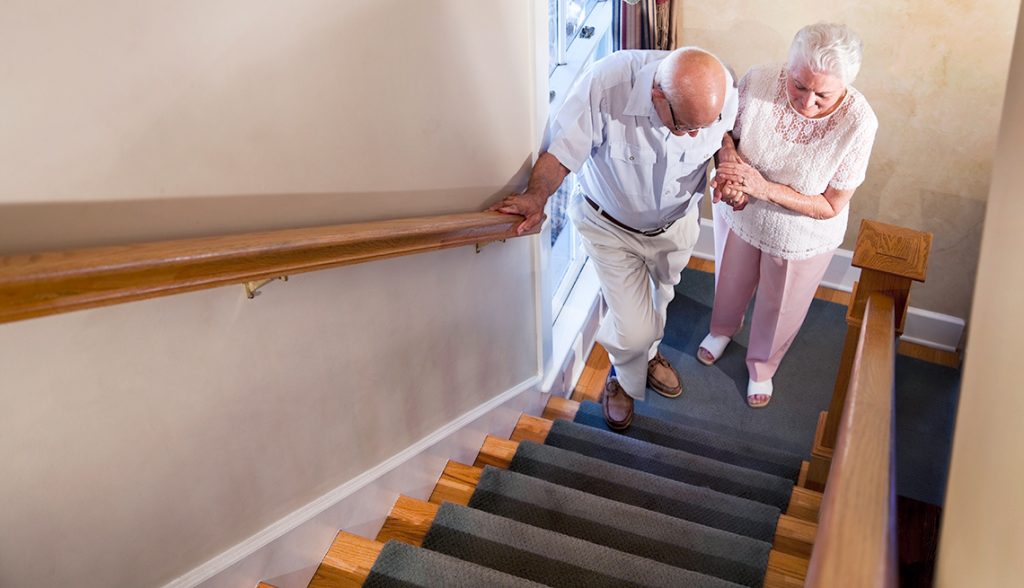
by Vikram Makhija | Oct 23, 2021 | Blog |
It’s no secret that as we age, our homes need to change. We may not be able to reach things like before or want to do some of the work around the house. Luckily there are plenty of ways you can make your home safe for aging parents, and it doesn’t have to cost much! Here are eight easy steps you can take today:

1) Remove everything from low shelves so there is more room for people who can’t bend down easily.
2) Install handrails on both sides of any stairs in your home (even if they don’t lead anywhere).
3) Make sure all electrical cords are out of walkways or secured with zip ties.
4) Purchase a grabber tool with an extendable arm to help your parents pick things up off the floor or ground.
5) Place night lights throughout your home.
6) Keep extra lightbulbs in a drawer or cupboard so they aren’t searching for them in dark hallways at night.
7) Place lots of electrical outlets in easy-to-reach locations, especially near bedside tables (and replace any that are worn out).
8) Make sure all furniture has good footing and will not tip over easily, like sturdy coffee tables for example. Be creative with things around your house! We hope these tips can help make your parents feel safe and comfortable in their homes!
Live Like A Sponge And Keep Your Home Safe For Aging Parents
Keeping your parents’ home safe can be overwhelming. You have enough on your plate getting them to appointments or making sure they don’t total their car after hitting a patch of black ice.
But there are at least 100,000 fall injuries every year in people over 65*, and broken hips are among the most serious because they often require surgery with lengthy recovery times.
To keep our aging parents safe , we have taken some steps that both ease our minds and allow us to remain caregiving advocates while attending to the other responsibilities in our lives.
One thing I did was shop for an apartment near my house so I could easily help my mom out when necessary, without having to drive across town every time she calls for some assistance or advice with her computer.
This also gives me the chance to check in on her place frequently to make sure she’s careful with what she is doing or not doing. Here are some tips I have compiled, which you can adapt for your own parent-ren:
1) Take all dangerous items out of lower shelves and countertops that they could pull down onto themselves if they were to lean in too far.
2) Install grab bars either side of any stairs, even if they’re just decorative, like these gorgeous vintage brass ones .
3) Make sure electrical cords are out of walkways (or use zip ties to cinch them up).
4) Purchase a grabber tool with an extendable arm so older folks don’t have to bend or stretch to pick up things off the floor.
5) Add night lights throughout your parent’s home so they can see their way at night. I also recommend a flashlight in every room with a temporary bulb so you don’t have to dig one out of a drawer if they happen to be walking around in the dark and stub their toe on something.
6) Keep extra lightbulbs in a drawer or cupboard so they aren’t searching for them in dark hallways at night.
7) Place lots of electrical outlets in easy-to-reach locations, especially near bedside tables (and replace any that are worn out).
8) Make sure all furniture has good footing and will not tip over easily, like sturdy coffee tables for example. Be creative with things around your house!
9) If you live in a climate where cracking windows or doors is necessary to keep the home from being too stuffy, add window alarms so they don’t get locked out accidentally.
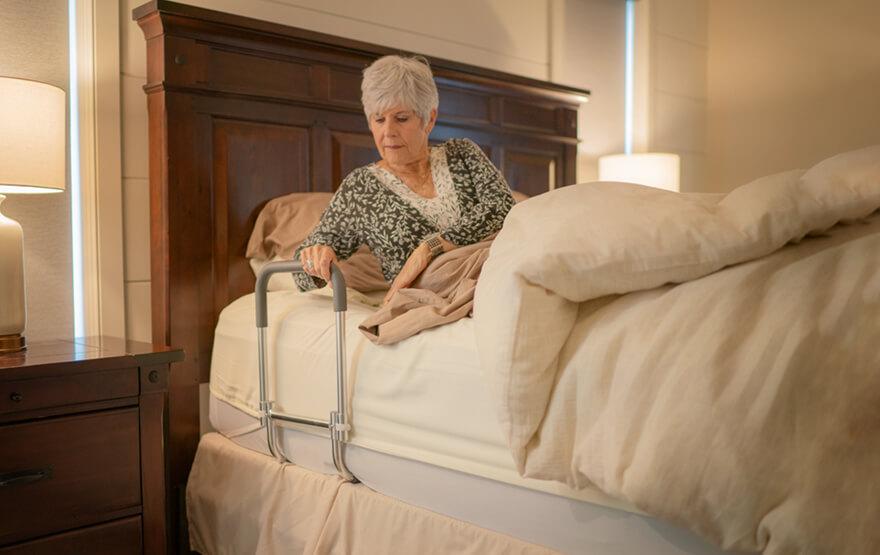
10) Keep an eye on heating and cooling bills. This handy tool helps you figure out what temperature it’s comfortable to be at during different times of the day, and will help make sure the electricity bill doesn’t go through the roof this winter as well as next summer.
It can be tough balancing between saving money and maintaining comfort levels when two people are living under one roof – as may soon become the case with some adult children caring for their elderly parents.
11) If your parent is driving, they may need to lower their speed on the highway. This will reduce the risk of accidents and allow them to keep driving for longer .
Here’s a resource that can help determine if they are eligible for new driver testing in their state (some states do offer this service free of charge). This tool is useful in figuring out what services you can provide yourself for an older adult who is still driving but shouldn’t be.
12) Talk to your loved ones about any living wills or advance directives so they know where everything is located when it comes time for seniors to transition into health care facilities, assisted living communities, or with family members who are willing and able to take them in.
13) If there are clearly dangerous or hazardous objects in the home, look into getting them locked away so you don’t have to smell gas leaks or worry about your parent falling over things they can’t see properly due to cataracts for example.
14) Make sure someone is always within calling distance of the older folks at all times, just in case an accident happens while you’re not around. I’m glad I did this after my dad fell and broke his hip while I was at work one day.
15) Ask if they need help with any repairs before doing them yourself, since some may be unsafe. This is true when it comes to rewiring outlets , hanging pictures , adding lighting fixtures , or even your parent’s wardrobe.
16) Get a pair of slip-resistant socks for them to wear around the house – they’re great for added traction on slippery floors, and are especially useful in bathrooms. Photos courtesy of Dorman Products .
17) Make sure there is plenty of space throughout their home; this will allow them to move more easily if they need to go from one area to another (like via wheelchair).
If you see that they may be bumping into things like end tables , consider moving them out of the way and/or adding some additional lighting, which could help your loved ones avoid any injuries.
18) Turn down the heat at night so it doesn’t get too warm.
19) Install motion detectors or a gate at the top of the stairs for added safety.
20) Install a loud alarm on your parent’s bedroom door so they can easily push it open if necessary but won’t have to fumble with keys or lock picks in the event of an intruder.
Ideally, you should search high and low for a product that includes both a loud alarm as well as a keyless entry pad so older adults don’t need any assistance from anyone else if they need to call for help (if they’re locked inside their room, for example). I recently had this feature installed and love how my front door opens up with just one touch of my finger!
21) Add large-print numbers above electrical outlets .
22) If things like cabinets are hard for your parent to reach, consider installing simple bar handles instead of knobs; this will make it easier for seniors to open them without straining their backs.
23) If someone has arthritis or any kind of hand pain , you might want to purchase some rubber jar openers . These work great on glass jars and bottles!
24) Put motion sensor lights in dimly lit areas like the basement, garage, or attic. It’s easy to forget that these areas can be dangerous during the night if there isn’t much light – which is why I love motion lights ! They’re super bright and come with sensors so they shut off automatically within just a few seconds after sensing movement.
25 Put grab bars in the tub and shower; these are super helpful for when your loved ones can’t get in or out of the bathtub, and gives them extra support when they need it most.
26) Keep a supply of non-slip rubber mats and bathmats within reach (especially if you live in an area with snow and ice during the winter). They make great slip-resistant accessories for both home and garden use!
27) A great way to add light in any room is by installing under cabinet lighting . It’s perfect for dark closets , sheds, garages, basements, pantries, etc.
28) You might want to consider buying special fixtures that reduce noise when opening doors or cabinets (I recently got these and love how quiet they are!)
29) And finally, no matter what you do or where you live, make sure there’s always a first-aid kit (and know how to use it!) within reach at all times.
30) There are even special containers that can be placed underneath your older adult’s bed so they have easy access to everything they need if an emergency arises. These help tremendously when looking for things like a flashlight, hearing aid , etc. in the night!
Conclusion paragraph
If you are an aging parent, or have aging parents in your life, it can be hard to keep up with the changes that come with age. Luckily there are many ways to make their homes safer for them so they don’t need to worry about being able to reach things on high shelves or climbing stairs safely.
The eight easy steps we outlined will get you started today! Do any of these sound like something you need? Let us know and our team would love help making your home safe for aging parents too!

by Vikram Makhija | Oct 10, 2021 | Blog |
In the United States, over 150 million people are uninsured. And even if you have insurance, it may not cover all of your needs. That’s where health care agencies come in!
These independent organizations connect individuals and families with a wide range of benefits to help them navigate their healthcare options. In this blog post we’ll talk about how to find a health care agency that best fits your needs so you can live life without limits on what medical services you need or want.
Health care agencies can help you find a plan with your specific needs. They have an array of tools at their disposal, including the ability to walk you through what you need by phone or e-mail if they don’t have a brick and mortar office in your area.
Many health care agencies specialize in certain areas, such as finding plans for those who are disabled, seniors living on a fixed income, or young adults moving out of their parents’ homes for the first time.
Many people worry about paying for medical services that they feel obligated to utilize even if they’re not entirely convinced those services will help them.
A health care agency can provide advice on which plans best fit your needs and financial means. There are even some companies that operate as benefits brokers for those who are self-employed or don’t have health insurance through an employer.

If you own a small business, you can pool your employees with other small businesses to increase their buying power and lower the costs of providing insurance.
Or, if one of your employees has signed up with a health care agency he or she may be able to get more affordable rates on insurance by adding additional individuals to his or her plan.
That’s because many companies offer discounted rates to married couples or families—even if they didn’t start out that way (and sometimes even if they legally aren’t supposed to).
Health care agencies can also help you find healthcare providers in your area who take part in your’s provider network.
Some plans only offer a certain number of physicians in your area. In some cases, it can be difficult to get an appointment with a doctor who belongs to your network because they’re too busy taking care of their existing patients.
When you’re trying to find the right plan for you and your family, whether it’s through an agency or on your own, don’t forget that under the Affordable Care Act (otherwise known as Obamacare), most insurance providers—including health care agencies—must offer ten essential benefits:
- Outpatient services—such as behavioral therapy
- Emergency services
- Hospitalization
- Pregnancy and newborn care
- Preventive services like vaccines and cancer screenings
- Pediatric services
- Mental health and substance abuse services
- Prescription drugs
- Rehabilitative and habilitative services and devices
- Laboratory services
That means home health care agencies and insurance companies must offer policies that cover ailments such as: asthma, ADHD, autism, diabetes, obesity, migraines, clinical depression—even laser eye surgery!
And if they don’t? Then you can always go with another company that offers better coverage of your specific needs! At the end of the day it’s all about finding a company who will do right by you and your family/employees.
As always, don’t forget that the best way to get reliable information about your medical needs is through Knowify our free service for people who need help finding medical care.
We make it easy to find out what services are available in your area (or elsewhere if you’re thinking of moving) and connect you with the medical providers who can give you the care you deserve.
We hope this blog article has helped show how health care agencies may be able to assist people in their search for affordable health insurance plans!
Remember, choices can often lead to better options. Knowify helps individuals and families connect with local physicians by providing them with detailed information on doctor’s specialties, location, gender, even languages spoken so they can choose the doctor that is right for them.
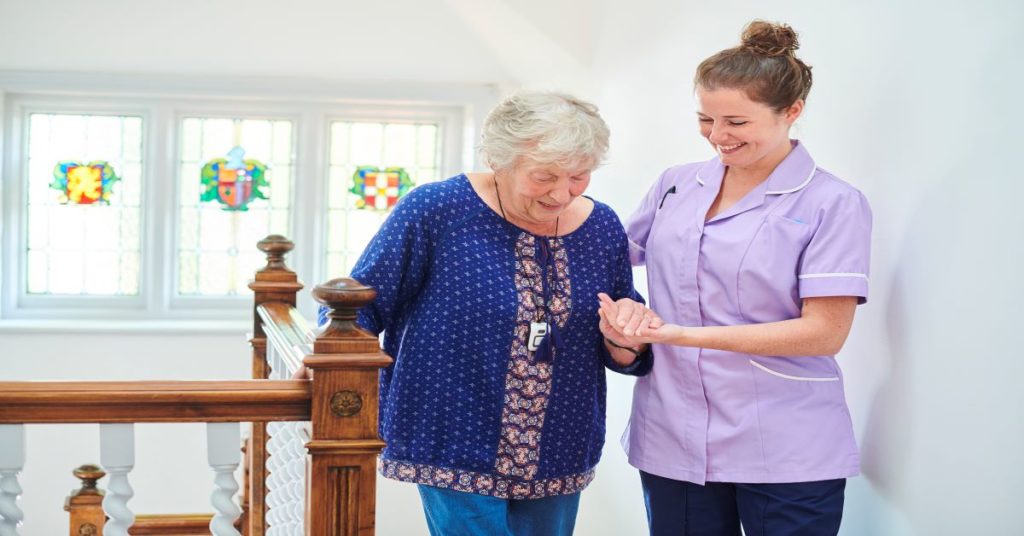
How do I choose a homecare agency??
If you’re looking for a home care agency it’s important that you do your homework. You need to know as much as possible about the agencies in your area, and we can help with this!
But what happens if you don’t find one? What does this mean for your loved ones…for you personally? Let us take a look:
The Department of Health and Human Services reports that there are more than 15 million Americans over the age of 65 (that conclusion is based off census data from 2010).
And while many of those people will be able to live independently, others will eventually need outside assistance. This is why it’s good to plan ahead, especially if your family or business has traditionally relied on your physical presence/contributions. If you’re not there, what happens??
Well, hopefully the people and projects you left behind will continue to carry on as normal (if that’s an option). But if not…well…it might be time to consider outside options for assistance.
And according to Census data from 2010, about 11 million Americans need this type of assistance (that number continues to grow as more people over 65 years old are added to the population).
So where can you turn? Well, it depends on what your needs are. There are a number of agencies out there that have been established specifically for those who need extra help performing their daily activities/tasks around the house or office.
If you’re in need of a home care agency then we recommend checking out this article: how-to-choose-a-homecare-agency.html . It has some useful tips and suggestions.
What are the types of health agencies?
Healthcare agencies are simply companies that have been established for the purpose of meeting various health care needs.
Some offer medical care directly to patients while others offer support services for those who need help finding medical attention.
And some do both! We’ll now take a look at what types of agencies there are so you can get an idea about how they may be able to assist you/your employees/family members
Community Health Centers
These centers typically serve underserved areas and provide free or low-cost primary medical services (including dental) for children, teens, adults, pregnant women, and seniors according to HHS .
They’re required to operate under federal grants provided by the Health Resources and Services Administration (HRSA), which determines funding levels based on the number of patients in each center’s area.
Most provide services regardless of immigration status, and many also offer language assistance for those who don’t speak English as a first language.
Outpatient Care Centers
According to HHS , these centers are typically privately-owned facilities that specialize in providing outpatient medical care to both children and adults including diagnostic testing, preventative checkups, lab work, x-rays, pulmonary function tests, EKGs, MRIs and CAT scans among other things.
Some may even have emergency rooms/urgent care on site! In order to participate though you’ll probably need to have insurance or be able pay out-of-pocket costs .
These type of agencies can include private practices owned by individual doctors as well as facilities owned by hospitals/universities.
Home Care Agencies
These agencies provide help with daily activities like cooking, cleaning, grocery shopping and laundry for those who need assistance at home (elderly, disabled).
They may also assist individuals with getting to appointments or picking up prescriptions if they’re unable to drive themselves. Most home care agencies coordinate schedules through an online portal where clients can indicate what days they want services provided so it’s always nice and orderly!
And because most of these agencies are non-medical there won’t be any issues if you forget your insurance card when you go in for a visit.
The cost of these agency visits will typically be on a per-it basis which is more affordable than if you had to schedule a visit with your regular doctor and pay for any prescriptions that may be written.
Ambulatory Surgery Centers
These centers specialize in providing same-day procedures such as minor surgeries, X-rays, lab work and other outpatient treatments under local anesthesia or IV sedation.
Since they don’t typically offer overnight care there won’t be many/any insurance issues if you need additional assistance while living at an Ambulatory Surgery Center .
The average cost of these types of visits is $2,500 per admission so it’s not the type of thing you should expect to foot the bill for on your own (but then again maybe this is one of those things that comes up when deciding betweenurances?)!
Urgent Care Centers and Hospitals
These centers typically provide care for conditions that are not life-threatening but need immediate attention. Depending on the severity of your condition, you may be treated on site or transferred to a hospital for further treatment (or vice versa).
If you’re covered by insurance then there shouldn’t be any issues billing since they accept most PPOs, HMOs and Medicare plans according to HHS .
Urgent Care Walk-in Clinics
Unlike urgent care centers , these clinics do NOT typically treat patients with serious injuries or life-threatening conditions like strokes and heart attacks (at least not immediately anyway).
They typically serve minor illnesses/injuries including sore throats, ear infections, pink eye, lacerations, back pain, etc. If you have a high deductible or are in need of assistance with bills then it’s typically cheaper to visit an urgent care walk-in clinic instead of your regular doctor since they can treat basically anything without requiring much follow up treatment.
Behavioral Health Centers
These centers are facilities that provide outpatient treatment for mental/behavioral health concerns including depression, anxiety, bipolar disorder, schizophrenia and other mood disorders.
They may also offer services for substance abuse issues like drug addiction and alcoholism . On site there will likely be psychiatrists on staff who can prescribe medications so if you need any help with this aspect of your healthcare costs then definitely give these places a look!
Even though many behavioral health centers operate independently from the hospital system they’re typically covered by most PPO/HMO plans and Medicare .
Other Adult Day Care Centers
These facilities typically serve older individuals who need a little extra help with daily activities like getting dressed or bathing.
Staff will be on site to assist those in need as well as provide activities for those who are able to participate. Just like all the other places listed, it’s likely these day care centers accept most types of insurance coverage so if you have a high deductible plan don’t rule them out!
The average cost for adult day care centers is around $40 per day but obviously this will vary depending on where you live and the services provided.
Adult Day Healthcare Centers
Speaking of different types of adult day care centers , these tend to be more intensive than just providing activities for patients.
These places typically provide medical-related support like taking vital signs, administering medication or helping with wound care .
If your in need of some extra help in this area then definitely consider an Adult Day Healthcare Center !
Home Health Agencies
These agencies consist of nurses/care providers who visit people’s homes to check up on their daily living abilities and treat them accordingly when necessary (e.g., administer IV medications).
A majority of home health agencies are part of the Medicare/Medicaid system so if you have either one of these types of insurance policies then it’s likely your provider will cover care through a home health agency .
The average cost for home health agencies is around $70 per day but again this depends on where you live and what services are provided.
Hospice
These are facilities that provide end-of-life care for terminally ill individuals, usually in their own homes or residential hospice centers.
Patients receive palliative treatment to relieve pain and other issues associated with their illness – basically any conditions that would make them uncomfortable at this stage in life. Hospices accept all insurances but they typically bill Medicare first since they’re the primary payer in this category.
The average cost for hospice care is around $150-200 per day – many times this includes basic necessities like food and housekeeping services so if you have a loved one in need of hospice then just keep that in mind when looking at prices.
Remember, all these rates are going to vary depending on where you live and the specific type of facility/service provided so I always recommend you call ahead to confirm what they accept before going in.
Also, feel free to bookmark this page since it may be useful when looking at costs for other types of healthcare throughout your life! If you have any questions please leave them in the comments section below and I’ll do my best to respond ASAP. Best of luck!
Chaplain Services
This is what I’ve seen most people are confused about because they’re under the impression chaplains are only located in hospital settings. While this used to be true, you can actually find chaplains in many different places today including rehabilitation centers, nursing homes and hospice centers .
Chaplain services provide spiritual support for individuals who request it through prayer, counseling or even general conversation.
These facilities may be affiliated with a particular religion/denomination but they typically serve all beliefs involving faith.
Also, the cost of chaplain services will vary depending on which type you need so just give them a call to see if they accept your insurance policy before going in!
Relaxation Therapy
Ever heard someone mention something called “spa therapy” or ” spa services?” Relaxation therapy is basically the same thing – they just go by many different names!
Relaxation therapies are typically offered in nursing homes, physical/speech rehabilitation centers and hospice facilities for people who need some extra help in coping with their illness.
This can include massage therapists, aromatherapists or even yoga instructors – again it all depends on where you go so make sure to ask before booking an appointment!
The average cost for relaxation therapies tend to be around $60 per session but obviously this can vary depending on which type you get.
Acupuncture
Acupuncture is used often in the treatment of pain conditions (e.g., back pain) due to growing evidence that it’s effective at minimizing pain in the body with minimal side effects. It works by stimulating specific points in the body to help ease discomfort and improve general health.
These services are offered in many places – chiropracting facilities, physical rehabilitation centers, wellness clinics and you can even find some practitioners who work from their own office location!
Because these professionals specialize in acupuncture, they tend to charge a bit more than other healthcare providers so expect to pay around $75-100 per session.
Weight Loss Programs
In case you didn’t know, obesity has become a huge problem for people all over America today – especially among children! As a result, weight loss programs have risen greatly in popularity because there is such a high demand for them.
Weight loss programs are typically only offered in doctor offices, wellness clinics and fitness centers that provide more than just weight loss services.
Before you book an appointment for this type of program, I recommend calling the facility to see what types of insurances they accept first since this will help lower your overall costs!
The average cost for these types of programs is around $10-50 per session which again can vary depending on the location/type of facility you attend so don’t forget to call ahead before booking anything!
Blog post conclusion paragraph
The health care industry is complex and can be confusing. That’s why it’s important to have help from a company that specializes in helping you find the best possible solution for your needs, not just based on how much they charge or what their clients say about them.
Our team of experts are ready to partner with you every step of the way so you don’t have to worry about finding reliable insurance providers or programs that will meet all of your medical needs. Contact us today!



